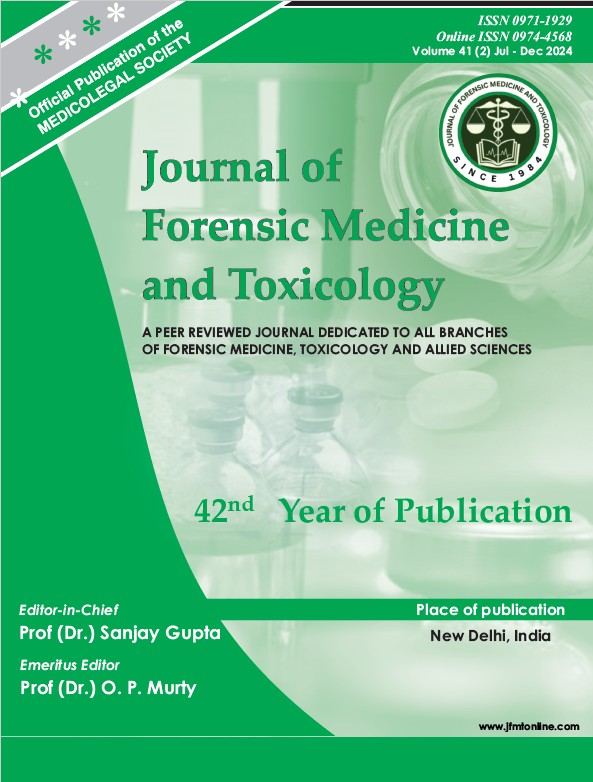COVID-19 & INDIAN MEDICAL STUDENTS: A SURVEY ON THEIR KNOWLEDGE & PERCEPTION REGARDING DEAD BODY MANAGEMENT OF COVID-19 PATIENTS
Keywords:
COVID-19, Medical students, Prevention and control, Dead body management, Forensic medicine, IndiaAbstract
Background: Since December 2019, a novel coronavirus disease (COVID-19) began its journey around the world. Since then, many efforts are being carried out to contain the virus. Knowledge and attitude of people should be directed towards strict preventive practices in order to halt the spread of the virus. Medical students, as frontline healthcare workers, are more susceptible to be infected by the virus. The aim of the current cross-sectional study is to assess the knowledge, practice and attitude of 2nd year medical students from medical college in tribal part of Gujarat, India, regarding dead body management of covid-19 patients. Methods: A self-designed questionnaire consisting of 19 questions was developed and given to the students. The knowledge, attitude, and practice of the participants were investigated. Results: A total of 235 medical students completed the questionnaire. Out of the total participants (n=235), 133(56.6%) were male and 102(43.4%) were female. 88.9% of students knew the fact that covid-19 dead body is infective, 94.5% students are aware about specific guidelines for dead body management of covid-19 patients, 40% students have no knowledge about Medico-legal
Downloads
References
World Health Organization. Novel Coronavirus (ýý 2019-nCoV)ýý: situation report, 11.
World Health Organization. Novel Coronavirus (2019- nCoV): situation report–10. 2020. URL: https://apps. who. int/iris/handle/10665/330775. 2020.
https://indianexpress.com/article/india/live coronavirus-in-india-updates-covid-19-vaccine-india world-latest-news-corona-cases-deaths-recovered news-6558870/
Backer JA, Klinkenberg D, Wallinga J. Incubation period of 2019 novel coronavirus (2019-nCoV) infections among travellers from Wuhan, China, 20– 28 January 2020. Eurosurveillance. 2020 Feb 6;25(5):2000062.
World Health Organization. Infection prevention and
control during health care when novel coronavirus (nCoV) infection is suspected: interim guidance, 25 January 2020. World Health Organization; 2020.
Centers for disease control and prevention. Update and interim guidelines on outbreak of 2019 Novel coronavirus (2019-nCoV).
World health organization. Responding to COVID-19: Real-time training for the coronavirus disease outbreak.
World Health Organization. WHO Director-General’s opening remarks at the media briefing on COVID-19- 11 March 2020.
Xu Z, Shi L, Wang Y, Zhang J, Huang L, Zhang C, Liu S, Zhao P, Liu H, Zhu L, Tai Y. Pathological findings of COVID-19 associated with acute respiratory distress syndrome. The Lancet respiratory medicine. 2020 Apr 1;8(4):420-2.
COVID-19: Guidelines on Dead Body Management. EMR Division, Directorate General of Health Services, Minist Health Fam Welfare Govern India. Available from:https://www.mohfw.gov.in/pdf/1584423700568_ COVID19Guidelines onDead body management.pdf.




